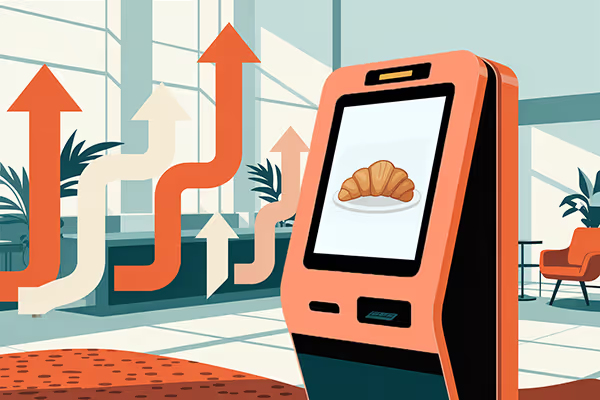Hotel check-in has long been seen as little more than a transactional formality. Guests arrive, present identification, confirm their booking, and receive a room key. Yet this seemingly simple process is actually one of the most influential moments in the guest journey. The experience at check-in often sets the emotional tone for the entire stay, shaping how a guest perceives the property, its staff, and its values.
In the modern hospitality industry, where travelers are increasingly time-conscious and digitally empowered, check-in has become far more than just an administrative step. It has evolved into a strategic touchpoint that combines guest satisfaction, operational efficiency, and revenue opportunities all in one moment. A smooth and well-designed check-in process can spark delight, encourage loyalty, and even unlock upselling potential. On the other hand, delays, confusion, or impersonal service at this stage can cast a shadow over the rest of the stay, something no hotel can afford in an era where online reviews travel faster than ever.

The lobby is the stage, and check-in is the first act. Guests may have browsed the hotel’s website or engaged in email exchanges before arrival, but the real relationship begins at the front desk, or kiosk, when they arrive. It’s here that guests form their first authentic impression of the property. That impression is powerful: research consistently shows that the arrival experience influences overall satisfaction more than almost any other moment in the guest journey.
When check-in flows smoothly, the guest immediately feels seen, valued, and welcomed. This reassurance creates a sense of trust and comfort that lasts throughout their stay. Conversely, a frustrating check-in with long queues, unprepared rooms, or staff scrambling for information signals disorganization and erodes confidence. For many guests, that single moment of friction becomes the lens through which they view the rest of their experience.
Hospitality has always been about human warmth, but modern guests also crave speed and efficiency. A business traveler checking in late at night after a long flight doesn’t want a lengthy interaction, they want their room key and a quick path to rest. A family on vacation, by contrast, might value extra attention, such as helpful tips for local attractions or guidance on amenities for children. Both are valid needs, and both should be accommodated without compromise.
Technology enables hotels to bridge this gap. By using kiosks and integrated PMS systems, the transactional aspects of check-in can be streamlined, reducing wait times and freeing up staff. Guests who want efficiency can get it without delay, while your personnel has the bandwidth to engage deeply with those who prefer a personal connection. This balance ensures every demographic feels catered to, and it positions the hotel as both modern and authentically hospitable.
By blending self-service technology with traditional service, hotels signal that they understand and respect different preferences.
The rise of self-service kiosks reflects a broader societal shift toward autonomy and convenience. Just as airports transformed with automated check-in terminals, hotels are now embracing kiosks to modernize the arrival process. Surveys reveal that more than 80% of travelers view kiosks positively, citing speed and independence as major benefits. Some guests even prefer kiosks because they reduce unnecessary small talk or social pressure, making the process less stressful.
For hotels, kiosks don’t just please guests, they also streamline operations. They reduce front-desk congestion during peak hours, cut down on administrative errors, and provide consistent service quality. A guest arriving at 11:00 p.m. can check in just as efficiently as one arriving at 3:00 p.m., without placing additional strain on night staff. The guest experience becomes predictable, reliable, and scalable, a vital advantage in competitive hospitality markets.
The adoption of kiosks doesn’t mean abandoning traditional hospitality. In fact, the most successful properties are those that offer their guests a choice. Younger generations, such as Millennials and Gen Z, often appreciate digital-first interactions that reflect the convenience they expect in other areas of life. But other demographics, particularly older guests, may still prefer the reassurance of a friendly face at the front desk.
By blending self-service technology with traditional service, hotels signal that they understand and respect different preferences. This hybrid approach both enhances inclusivity and strengthens the brand’s reputation as guest-centric. Offering multiple check-in options ensures that no one feels overlooked or forced into a system that doesn’t fit their comfort zone. Ultimately, it demonstrates that the hotel is both forward-thinking and authentically human, a combination that resonates across all age groups.

The arrival experience sets the emotional foundation for the guest’s relationship with the property. Guests who glide through check-in without obstacles feel an immediate sense of care. They know the hotel is ready for them, and that creates a feeling of belonging. This positive sentiment ripples forward: guests who begin their stay with a seamless arrival are more forgiving of small inconveniences later, and they’re far more likely to return.
In contrast, guests who wait in long lines or encounter confusion at the front desk often start their stay in a sour mood. And in today’s review-driven marketplace, even minor frustrations can result in negative online ratings. By eliminating friction at check-in, hotels not only create satisfied guests in the moment but also protect their long-term reputation and increase the likelihood of glowing feedback. It’s not just about check-in efficiency, it’s about setting the stage for loyalty that lasts.
Personalization is no longer a luxury in hospitality, it’s an expectation. Check-in offers the first real chance to put personalization into action. Through integrated PMS platforms, hotels can recognize returning guests, remember their preferences, and tailor offers accordingly. A guest who previously booked spa services might be presented with a discounted package upon check-in. A traveler who always books a higher room category might be nudged toward an upgrade.
Even small touches, like greeting guests by name or acknowledging a loyalty program milestone, reinforce a sense of recognition. When guests feel seen and understood, they’re more likely to engage with the property, purchase additional services, and share positive reviews. Personalization at check-in transforms what could be a purely administrative moment into the first step of a curated, memorable experience.
Guests don’t see behind the scenes, they just experience a hotel that feels organized, polished, and ready.
Hotels operate in an environment where labor shortages and rising costs are common challenges. Automation offers relief by shifting routine tasks like ID verification or key issuance away from staff. When kiosks handle these duties, employees can focus on activities that create value: problem-solving, relationship-building, and personalized upselling.
This shift has measurable impact. Hotels implementing automation report up to 15% reductions in labor costs and efficiency improvements of 30% or more. The benefits are twofold: guests enjoy faster service, and staff feel less overwhelmed by repetitive tasks. In an industry where burnout is a real risk, this kind of operational support can also improve employee satisfaction and retention.
Check-in efficiency is not only about the front desk, it depends on coordination across the hotel. An integrated PMS connects departments in real time: housekeeping knows which rooms are ready, maintenance receives alerts about issues, and F&B staff are updated on guest packages. This synchronization prevents embarrassing mishaps, like assigning an uncleaned room, and ensures that group arrivals are handled smoothly.
When all teams operate from a single source of truth, the entire guest journey becomes more coherent. Guests don’t see the behind-the-scenes coordination, they just experience a hotel that feels organized, polished, and ready.

Check-in is a golden opportunity to boost revenue. Guests are in a decision-making mindset: they’ve just arrived, they’re excited about the stay, and they’re open to enhancing their experience. Self-service kiosks and PMS-integrated prompts capitalize on this moment by suggesting upgrades and add-ons. Whether it’s offering a better room with a view, breakfast packages, or a discounted spa treatment, upselling at check-in feels natural rather than intrusive.
The data speaks volumes: guests who use kiosks are three times more likely to purchase upsells and generate nearly 70% more upsell revenue compared to traditional check-in methods. For hotels, this means check-in isn’t just about assigning rooms, it’s about strategically growing revenue in a way that feels effortless for both staff and guests.
Check-in also connects directly to bigger revenue goals. By feeding real-time occupancy and demand data into the PMS, hotels can optimize dynamic pricing strategies that maximize RevPAR (Revenue per Available Room). Beyond that, the industry is increasingly focusing on RevPAG (Revenue per Available Guest), which takes ancillary sales into account.
Upselling at check-in contributes significantly to RevPAG, ensuring that each guest generates more value over the course of their stay. In this way, check-in is more than a logistical moment, it’s the beginning of a revenue journey that extends throughout the guest’s time at the property.
Strong integration ensures that technology supports hospitality rather than complicates it.
While the promise of kiosks and automation is enticing, not all technology implementations go smoothly. Many hotels struggle when systems don’t integrate seamlessly. Imagine a kiosk that doesn’t sync with the PMS, leading to duplicate records or misaligned billing. Or worse, imagine a guest being assigned a room that’s still being cleaned because housekeeping systems weren’t updated. These gaps create frustration for guests and headaches for staff.
Disconnected systems can also drain efficiency instead of improving it. Staff end up troubleshooting technology rather than delivering hospitality, which undermines the very reason for adopting new tools. The lesson is clear: without proper integration, technology risks becoming a burden rather than a benefit.
The key to unlocking the potential of check-in technology lies in strong system design. When kiosks, PMS platforms, and other hotel systems communicate seamlessly, guest journeys feel smooth and intuitive. A solution like VIPS CloudPMS ensures that all updates happen in real time, giving staff and guests alike confidence in the process.
With robust integration, technology fades into the background, working invisibly but powerfully. Guests don’t notice the systems at work; they simply experience a check-in that feels effortless, accurate, and welcoming. Hotels, meanwhile, gain the operational clarity they need to deliver consistently excellent service. In this way, strong integration ensures that technology supports hospitality rather than complicates it.
Hotel check-in is far more than a quick exchange of paperwork and keys, it is a critical hospitality moment that shapes the entire guest journey. From first impressions to revenue opportunities, this single touchpoint carries disproportionate weight. A seamless check-in process creates satisfied guests, loyal customers, and empowered staff. It also opens the door to upselling, personalization, and more efficient operations across every department.
Hotels that invest in guest-centric, integrated check-in solutions gain more than efficiency. They gain happier guests, stronger reviews, reduced labor pressures, and revenue growth that extends beyond the room. In today’s highly competitive landscape, where every detail matters, the message is clear: check-in isn’t just the start of a stay, it’s the start of a relationship, and the smartest hoteliers treat it as such.

The all-in-one solution for your hotel

Relieve your staff and offer upgrades to guests



Secure your spot on our exclusive monthly mailing list,
VIPS Access, to unlock this guide, plus more practical insights for hospitality professionals.

You can download it through the button below, or via the link in your inbox.